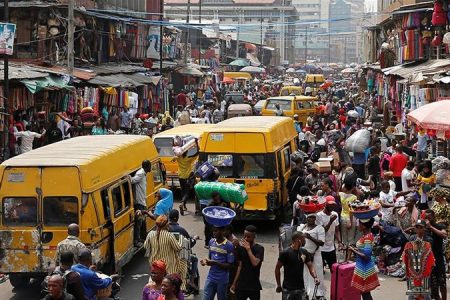
Who Will Rescue Nigeria’s Ailing Economy?
By Hafsat Ibrahim
These, certainly, are not the best of times for Nigeria’s economy. In fact, it has not in the last few years. Between 2016 and 2020, a period of four years, under the leadership of President Muhammadu Buhari, the country went into two economic recessions.
As I type this piece, the inflation rate is double digit. The naira has continued its free fall compared to the dollar. Worst still, the government has not, in recent times, evolved viable fiscal policies that will rescue the nation’s economy, which has long been on life-support. Indeed, the problems plaguing Nigeria and its ailing economy are legion.
The economy did not however become this bad overnight. Decades ago, Nigerians bought fuel at 9kobo, naira was at par with the dollar. Young secondary school leavers got employment letters immediately. Nigeria also competed favorably in the comity of serious nations.
The above benefits were enjoyed by all individuals irrespective of tribe and religion. Some of the beneficiaries of the good old days are in the present government, making life unbearable for the average Nigerian.
The country’s economy shrank two quarters in a row amid contraction in its oil sector. Nigeria has slipped into a recession after its gross domestic product contracted for the second consecutive quarter, according to official data released by Nigeria Bureau of Statistics (NBS). The recession was caused by high interest rates, inflation, reduced consumer confidence, accumulation of debt servicing especially foreign debt.
The unfortunate effect of Nigeria’s ailing economy could virtually result in higher rate of unemployment, lower wages and income, private capital investment and economic opportunity are all likely to suffer in the current downturn. During recession, there is usually a decline in certain macroeconomic indicators such as GDP, Investment spending, among others.
However, in other to curb the problem faced by the economy, the government has an enormous task ahead starting from the citizens by voting for the right and best candidate,the government also has to create more job opportunities to reduce the rate of unemployment in the country, by increasing our FDI (foreign direct investment). This can be encouraged by consistent policy on public private partnership (PPP).
Furthermore, the government socio-investment programs such as the N-power, have not actually yielded the desired result due to some factors which include: corruption and clear road map of program implementation.
The government should also create a means of communication between the stakeholders and the people at the grassroots level to know what their problems are. This bridge in communication has thwarted the government’s effort on its social investment program (conditional cash transfer) which was designed to benefit the poor and vulnerable in the society.
